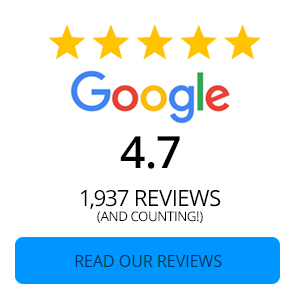When you're deciding which bank or credit union to call "home" there's a lot to know. Sometimes, the amount of information can be overwhelming. TV ads, billboards, radio commercials, and even little league jerseys display what each claims to be the "best" financial institution for one reason or another.
So... what matters most when choosing where to stock your hard-earned cash? The answer might surprise you.
It's the Little Things
Twenty years ago, author Richard Carlson wrote a wildly popular book called "Don't Sweat the Small Stuff (...andit's all small stuff)," which inspired readers to establish once and for all what - exactly - matters most to them. The liberating lesson consumers took away was that "having it all" is impossible, so you should focus on the one or two biggies, and let the rest go. When it comes to opening an account with a financial institution, we agree - it's all small stuff. Unlike Carlson though, we believe it all matters.
Fortunately, there are financial institutions in your neighborhood that actually do "sweat the small stuff" on your behalf, so you can focus on what really matters in life. How a credit union treats members is a clear indication of whose interest they back. Here are 7 examples you may not have known.
- You're a member. When you join a credit union, you become an owner. You're one of the team, not a typical customer.
- Everyone invests. Your local credit union considers you a shareholder. So instead of a board room full of faceless suits, you get dibbs on the profits when your credit union wins in business. Your shares are dished out to you in the form of dividends, as well as lower rates on loans and fewer fees charged for products and services.
- "Products" are just the beginning. Imagine a handful of financial institutions that all offer the same products, but only one has a warm, friendly, team who asks how your kids are. The same people invest back in you by offering ongoing educational resources, regular newsletters and engaging, zany competitions.
- Less (or non-existant) fees. For the most part, all banks offer similar products. What makes one stand out among the others is the cost of doing business there. A local credit union will have the same programs for your money management, but you'll notice lower fees, with many offerings completely free of charge. Again, since there are no intimidating, grumpy old stockholders to pay out returns, your credit union is free to pass those savings onto it's owner-members. That's you!
- Practice frugality. Do you see banks that seem to spend a lot of money? Do you ever wonder where all the cash comes from? Choose a financial institution that takes its own advice and lives frugally. Saving money is a virtue, especially for a bank. When institutions practice resourcefulness, they have more money to pay their shareholders. And again, if you want to know who a bank's shareholders are, remember point #2 of this list.
- History and purpose. Banks, if you'll recall from history class, have mixed stories, often involving monopolies, corruption and government involvement. Many credit unions were founded during our country's Great Depression as a safe, non-profit alternative. Most carry on the torch of helping others and honoring causes that matter.
- Your involvement. If you'd like to turn around serve your credit union, you can. Vote on how your financial institution operates, and consider running for a volunteer board position to contribute your talents and time.
For Americans, the number one source of confidence in a bank is that bank's interest in customers' financial improvement, according to Gallup. To measure that, ask yourself where your financial institution's profits go, how your credit union or bank gives back to the community, who steers the ship, and whether you're more (or less)money-wise after visiting their websites, blogs and social media pages.
Perhaps most importantly, measure the best place to bank by how you feel when you stroll into the lobby. After all, in some places, you just feel right at home.
Image Source: Flickr

